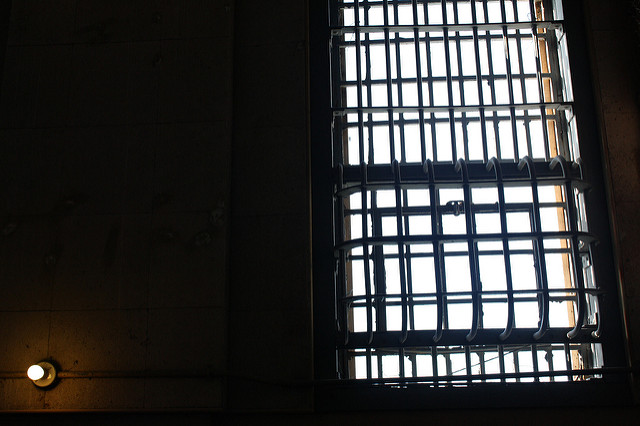This Story of an Inmate Who Was Mistakenly Released Shows Why We Need Criminal Justice Reform
By:
Rene Lima-Marin, a Cuban immigrant, has found himself in and out of prison over the last two decades thanks to a bizarre series of events that demonstrate the shortcomings of the U.S. criminal justice system — and the rehabilitative power of a second chance.
 Associated Press - apimages.com
Associated Press - apimages.com
According to The Washington Post, Rene Lima-Marin was convicted in 2000 on multiple counts of robbery, kidnapping, and burglary after robbing two video stores with another man. The Post reported that Lima-Marin was sentenced to 98 years in prison, meaning he would be in jail until 2098 — or, more likely, until the end of his life.
But it was only eight years later, in 2008, that Lima-Marin was released on parole, apparently due to a clerical error. Authorities didn't realize he'd been improperly released until 2014. In that time, Lima-Marin had completed parole, turned his life around, married his high school sweetheart, and had children. When he was returned to prison in 2014, he began a years-long legal battle to get his sentence commuted.
That battle ended with the ruling of Judge Carlos A. Samour:
The judge ruled that re-incarcerating Lima-Marin would be "Draconian," writing in his court order that, "At the end of the day, the Court concludes that it would be utterly unjust to compel Lima-Marin, at this juncture, to serve the rest of his extremely long sentence. The government — not Lima-Marin, his family, the community, and society — should bear the brunt of the consequences of its conscience-shocking deliberate indifference."
But the story includes one more bizarre twist.
After the judge issued the ruling setting Lima-Marin free, again, he was placed on a hold by U.S. Immigration and Customs Enforcement, the agency responsible for Trump's crackdown on immigration. As of now, he's still behind bars.
Lima-Marin's story demonstrates the limits of prison as rehabilitation.
Given that Lima-Marin was able to turn his life around after serving only eight years of his 98-year sentence, it begs the question: what's the point of those other 90 years? If prison is meant to turn criminals into productive members of society, then a 98-year sentence makes that impossible. Had things gone according to plan, Lima-Marin would have died in prison. How many men and women who are ready to make a change — like Lima-Marin evidently was in 2008 — but are instead rotting behind bars?
According to Monitor, the magazine of the American Psychological Association, rehabilitation was once an important element of incarceration. "Until the mid-1970s, rehabilitation was a key part of U.S. prison policy. Prisoners were encouraged to develop occupational skills and to resolve psychological problems — such as substance abuse or aggression — that might interfere with their reintegration into society."
 Derek Key - flickr.com
Derek Key - flickr.com
That all changed in the 1970s, as the "tough-on-crime" trend ushered in the era of mass incarceration.
In the years since the 1970s, rehabilitation has become less and less an objective of incarceration. With a culture of "tough on crime" politics leading the charge, retribution slowly became the purpose of imprisonment. Now, the United States has the highest incarceration rate in the world: 719 inmates per 100,000 people. And that's in large part due to our lengthy sentences. In fact, one out of every 11 inmates is serving a life sentence. Compare that to Norway, a country with a maximum prison sentence of 21 years. There is literally no such thing as life in prison in Norway, much less for armed robbery.
One of the main reasons for long prison sentences in the United States is the use of "mandatory minimums" — minimum sentences for certain crimes. Last week, Attorney General Jeff Sessions issued a memo to U.S. prosecutors ordering the reinstatement of mandatory minimum sentences for non-violent drug offenders. The memo also instructed prosecutors to seek the harshest available punishments in federal cases. A complete list of Federal Mandatory Minimums shows that the distribution of drugs like marijuana, cocaine, LSD, or heroin — in sufficient quantities — results in a minimum sentence of 10 years. And that's for a first offense. A third offense gets you life in prison, even if the crime was non-violent.
